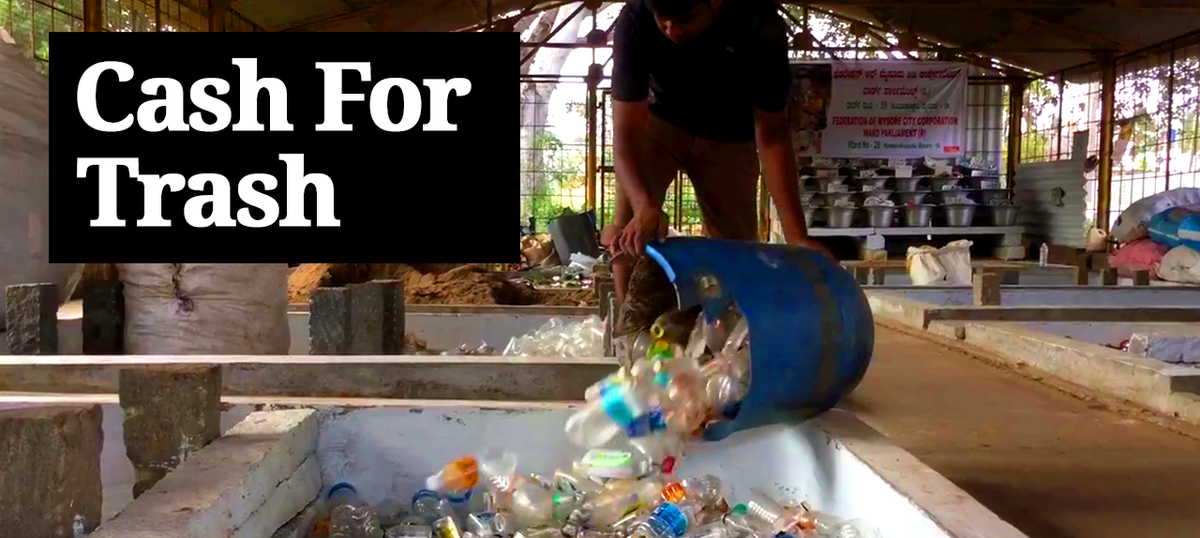By 2025, according to a World Bank report, 1.4 billion people will be living in cities. And each inhabitant of every city will generate around 1.42 kg of trash a day. Annual urban waste generation will also triple.
In the densely populated cities of India, too, waste is increasingly becoming a vital issue. Mumbai alone generates 9,000 tonnes of trash daily. One suggestion for better management that is that garbage must be segregated at the local and household level.
This is where a community in the Kumbarakoppal ward in Mysuru, Karnataka – India's cleanest city – is showing the way. The waste management plant in the locality, which has around 2,000 households, has encouraged citizens in the area to participate in waste segregation. And the strategy has worked well. Only five per cent of the waste generated by the inhabitants finds its way into a landfill.
The other 95 per cent? It's sold for recycling.
Just imagine the difference it would make to the country’s overflowing landfills if high-rise complexes and neighbourhoods in India’s metro cities were able to do even a fraction of this.
Just 0.2% of readers pay for news. The others don’t care if it dies. You can help make a difference. Support independent journalism – join Scroll now.

Our coverage is independent because of readers like you. Pay to be a Scroll member and help us keep going.
